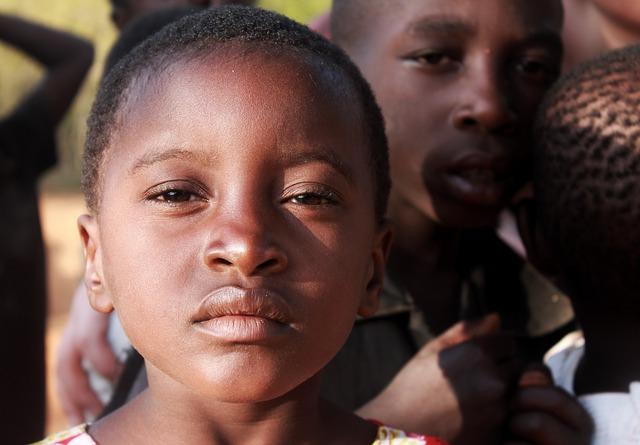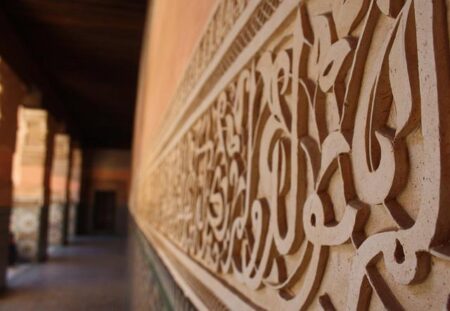In a notable move to bolster Africa‚Äôs representation on the global stage, Sierra Leone has announced its commitment to intensify the campaign for a permanent seat on the United Nations Security Council (UNSC). This initiative, underscored by Sierra Leone’s diplomatic leadership, aims to rectify the long-standing underrepresentation of African nations in a body often responsible for critical international decisions affecting peace and security. As discussions surrounding UN reform gain momentum, Sierra Leone’s elevation of this issue highlights the pressing need for equitable representation in international governance structures. This article explores the implications of Sierra Leone’s stance, the past context of Africa‚Äôs efforts for a permanent UNSC seat, and the broader impact such a shift could have on global diplomacy and the African continent.
Sierra Leone’s Strategic Advocacy for an African Permanent Council Seat
Sierra Leone is stepping up its advocacy efforts to secure a permanent seat for Africa on the United Nations Security Council. This strategic push comes as the nation recognizes the urgent need for greater representation and influence of african countries in global decision-making processes. By rallying support from fellow African nations and engaging in dialogue with key international stakeholders, Sierra Leone aims to highlight the importance of equitable representation that reflects the continent’s diversity and aspirations.
Key components of Sierra Leone’s advocacy plan include:
- Regional Collaboration: Building alliances with other African nations to present a united front.
- Global Awareness Campaigns: Increasing visibility through media and public engagements to inform the international community.
- Diplomatic Engagement: Utilizing diplomatic channels to lobby for support from non-African countries.
To further emphasize the necessity of an african voice within the Council, Sierra Leone plans to present data and case studies illustrating the impact of current representation issues. A concise overview of the situation is detailed in the table below:
| Current UNSC Seats | Africa’s Representation | Proposed Changes |
|---|---|---|
| 15 total council members | 3 (Elected annually) | 2 permanent seats |
| 5 permanent members | None from Africa | Include African nations |
Through these efforts, Sierra Leone is not only advocating for a permanent seat on the Security Council but also pushing for broader reform that addresses longstanding issues related to governance, peacekeeping, and security on the continent. This advocacy positioning reinforces the crucial role of African nations in contributing to global stability and underscores the need for structural change in international organizations.

the Geopolitical Importance of Africa in Global Governance
The quest for a permanent seat for Africa in global governance structures, particularly at the United Nations Security Council, has gained renewed momentum with Sierra Leone at the forefront. This initiative is anchored in the understanding that Africa’s political weight and economic potential are critical to addressing major global challenges. As the continent continues to evolve, its inclusion in decision-making processes is essential for ensuring complete representation of its unique interests on the global stage. The Sierra leonean government emphasizes that it is not merely about gaining a seat, but rather about amplifying Africa’s voice in discussions on security, development, and humanitarian interventions.
Key factors underscoring Africa’s importance in global governance include:
- Demographic Diversity: Africa has the youngest population in the world, which brings fresh perspectives to global issues.
- Resource Richness: The continent is endowed with vast natural resources that are pivotal in driving both regional and global economies.
- Geopolitical Stability: Africa’s stability is closely linked to international peace and security, making its involvement crucial in diplomacy measures.
- Innovation and Growth: Countries within Africa are emerging as hubs for technological innovation and economic growth, contributing to a more balanced global economy.
As discussions on this issue progress, it is essential for stakeholders to consider how a permanent seat could transform not just the continent but the world. Investing in Africa’s representation can lead to more effective global governance, addressing pressing issues such as climate change, migration, and health crises. With a platform to express its perspectives and priorities, africa can confidently participate in shaping a more equitable international order.

Challenges Facing sierra Leone’s initiative at the United nations
The road to securing a permanent seat for Africa on the United Nations Security Council includes various obstacles that challenge Sierra Leone’s initiative. Firstly, the concept of a permanent African representation faces resistance from some existing permanent members who fear a dilution of their influence. The debate centers on issues such as governance,security,and economic disparities among African nations that could complicate a unified front. Moreover, the lack of clear consensus among African nations about which countries should hold the seat further complicates negotiations.This internal discord could undermine efforts for a cohesive proposal to present at the UN.
additionally, financial constraints play a significant role in this initiative. Many African nations struggle with basic development needs, making the prioritization of UN council representation a contentious issue. To gain traction, Sierra Leone must not only lobby effectively but also demonstrate that a permanent seat will lead to tangible benefits for the African continent as a whole. Key challenges include:
- Geopolitical Rivalries: Competing interests among regional powers may hinder coordination.
- Public Perception: Citizens may question the value of international representation versus local investments.
- Structural Limitations: Existing UN frameworks can stifle innovative solutions proposed from the African viewpoint.

Collaborative Efforts Among African Nations to Strengthen the Bid
The quest for a permanent seat on the United Nations Security Council has witnessed unprecedented collaboration among African nations, driven by the shared vision of enhancing the continent’s voice in global affairs. This collective ambition is shaped by the recognition that a unified approach amplifies the continent’s negotiating power. nations such as Sierra Leone, South Africa, Nigeria, and Kenya have convened regional forums and bilateral discussions to forge a cohesive strategy. These efforts focus on key areas, including:
- Diplomatic Engagement: Strengthening diplomatic ties through regular consultations and joint statements.
- Resource Sharing: Pooling resources for lobbying activities that engage international stakeholders and UN member states.
- Common Messaging: Crafting a unified narrative that emphasizes Africa’s contributions to world peace and security.
To illustrate the progress made in this collaborative endeavor, a recent summit highlighted strategic commitments from participating nations, each pledging to support Sierra Leone’s leadership in this initiative. A simple overview of these commitments can be seen below:
| Country | Commitment |
|---|---|
| Sierra Leone | Lead advocacy efforts at the UN |
| South Africa | mobilize support from BRICS partners |
| Nigeria | Secure backing from the African Union |
| Kenya | Promote African interests in regional forums |
this cooperative momentum is not only vital for achieving the long-overdue representation of African nations but also symbolizes a commitment to transformative diplomacy aimed at reshaping global governance structures to better reflect contemporary realities.

Recommendations for Building a Unified African Voice in Global Diplomacy
To effectively champion Africa’s interests on the global stage, it is imperative to foster a collective diplomatic identity.African nations must streamline their diplomatic efforts by initiating collaborative forums and platforms that unify their voices on critical international policies.This entails establishing a robust communication network among African states, enabling them to share insights and strategies consistently. Such solidarity can be achieved through:
- Regular Summits: Organizing biannual gatherings of African leaders focused on diplomatic objectives and shared challenges.
- Joint Policy Frameworks: Developing cohesive stances on key issues like climate change, economic cooperation, and security that resonates with Africa’s unique context.
- leveraging Regional Organizations: Employing bodies like the African Union and ECOWAS to amplify collective positions in international fora.
Moreover, investing in diplomatic training programs for emerging leaders and negotiators within african countries will enhance their competency in global diplomacy.Countries should focus on nurturing skilled diplomats who understand the intricacies of international relations and can advocate effectively for Africa’s agenda. Establishing mentorship initiatives where experienced diplomats guide the next generation would further solidify this effort. Through tailored training, African diplomats can better navigate multilateral negotiations and engage with global powers while maintaining Africa’s integrity and interests.A proposed framework might include:
| Training Program | Focus Area | Target Audience |
|---|---|---|
| Diplomatic Negotiation Skills | Negotiation tactics and strategies | Mid-level diplomats |
| International Policy Understanding | Global governance and policy frameworks | Newly appointed diplomats |
| Cultural Diplomacy Workshops | Cultural sensitivity and engagement | All diplomats |

the Role of Civil Society in Supporting Sierra Leone’s Proposal
The engagement of civil society in supporting Sierra Leone’s bid for a permanent seat on the United nations Security Council is pivotal. These organizations serve as essential intermediaries between the government, the public, and the international community, advocating for the interests and perspectives of ordinary citizens. Their role encompasses several critical functions, including:
- awareness Raising: Civil society groups educate the public about the implications of such a proposal and the necessity of continental representation on global platforms.
- Mobilization: They organize campaigns that rally public support, ensuring that the voices of the people resonate within diplomatic corridors.
- Policy Advocacy: Civil society acts as a watchdog, promoting accountability and clarity in the government’s approach to international negotiations.
Moreover, civil society can connect local issues to the broader narrative of Africa’s diplomatic aspirations. By translating complex diplomatic initiatives into understandable terms, these organizations can foster stronger civic engagement and solidarity across borders. A deeper collaboration could manifest through:
| Collaborative Strategies | Expected Outcomes |
|---|---|
| Joint Workshops and Seminars | Enhanced understanding and participation among community members |
| Social Media Campaigns | Increased visibility and engagement on international platforms |
| Policy Briefs and Advocacy Reports | Informed decision-making by policymakers |

Insights and Conclusions
Sierra Leone‚Äôs renewed commitment to advocating for a permanent seat for Africa on the United Nations security Council highlights a pivotal moment in the continent’s quest for equitable representation on the global stage. As Africa seeks to enhance its voice in international decision-making processes, the call for structural reform within the UN system gains momentum. Sierra Leone‚Äôs leadership in this endeavor not only underscores the importance of inclusivity and fairness in global governance but also reflects the collective aspirations of a region eager to address pressing challenges collaboratively. As these discussions unfold, the international community will be watching closely to see how this initiative evolves and whether it can ultimately pave the way for tangible changes in the power dynamics of global diplomacy. The momentum generated by Sierra Leone represents a step forward in the long-standing pursuit of a more representative United Nations, one that acknowledges and values the contributions of all its member states.







